HistoRIES Branch
The Histories Branch records the official institutional and operational history of the Marine Corps. It prepares a wide variety of publications, ranging from pamphlets, monographs, and occasional papers to case-bound histories, for distribution within the Marine Corps, the Department of Defense, other Federal agencies, and to the general public. Publications produced by the branch are written works that provide an account of the planning, operational, logistical, developmental, and/or administrative activities of a specific unit, event, or period in Marine Corps history.
Mission
In accordance with Marine Corps Order 5750.1H, the Histories Branch is responsible for recording the official institutional and operational history of the Marine Corps. Located in the Brigadier General Edwin H. Simmons Marine Corps History Center on the Marine Corps University campus, the branch reports to the director of the History Division. It executes the director’s mission of preparing works that offer historical perspective and precedents to be used in decision making for policies, plans, doctrines, and techniques, and to support professional military education. Its historians are subject matter experts on the service’s history and prepare publications for distribution to the Marine Corps, the Department of Defense, other Federal agencies, and the general public. In service of this mission, the History Division and the writers in Histories Branch produce a variety of publications, including battle studies, monographs, and definitive histories. These works provide an objective and thorough account of the planning, operational, logistical, developmental, and administrative activities of a specific unit, event, or period, thus fostering esprit de corps and ensuring that the history of the Marine Corps is available for practical study.
BACKGROUND
The origins of what would become the Histories Branch dates to the months after World War I, when Secretary of the Navy Josephus Daniels directed the Navy and Marine Corps to prepare institutional histories of their wartime experiences. On September 8, 1919, Major General Commandant George Barnett established the Historical Section, Adjutant and Inspector’s Department at Headquarters, U.S. Marine Corps, in Washington, D.C. In the subsequent decades, the History Division made several organizational changes, creating the Histories Branch and its three sister branches within the division, as well as a number of moves, from the Navy Annex at Arlington, Virginia to the Washington Navy Yard and finally to Marine Corps Base Quantico. Throughout, the mission to preserve and promote Marine Corps history has remained.
Types of Works
To find our entire catalog and stay up to date on the most recent publications, please go to the History Division's Publications page, which you can find here.
Since the division was founded in 1919, its writers have been recording history that is applicable to Marines but appeals to other Federal agencies, scholars, and a general audience. The office produces a variety of publications of varying length in the fulfillment of its mission. These fall into three categories traditionally:
Historical Studies
The first are historical studies that reflect discussions occurring inside the Marine Corps and inform those responsible for making decisions that will shape the future of the service. These works can be three types:
Battle Studies: Short case studies of single battles or campaigns involving the Marine Corps. Their length can range from 15,000 to 40,000 words.
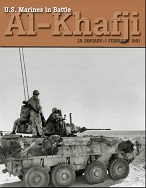
Reference Pamphlets: Concise narratives on narrow topics in the recent past, these are intended to keep Marines informed and to provide answers to the public. Authors generally have been Marine officers. Pamphlet length can range from 12,000 to 20,000 words.
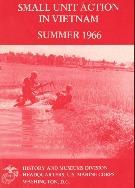
Occasional Papers: Any product that is considered of intrinsic worth to the study of Marine Corps history but is not intended for mass publication. Design work is minimal and print runs are small. They can range from 10,000 to 190,000 words.
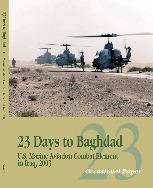
Commemoratives
The second are works that commemorate important events in Marine Corps history. They are derivative works written for a popular audience and are of one type:
Commemoratives: These short books (15,000-50,000 words) serve as History Division’s main contribution to Department of Defense efforts to commemorate major wars, in particular World War II, Korea, and Vietnam. They focus on a specific campaign, operation, or theme of significance to the overall war effort.
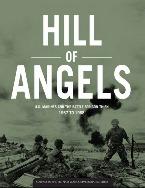
Official Histories
The third category is official histories of the major wars that the Marine Corps has fought. In the production of these official histories, the office has followed an identifiable pattern for the last forty years:
Anthologies: These are the first stage of official history and intended as an interim reference until there has been sufficient historical distance from the event. They are a compilation of articles, interviews, after-action reports, and other sources related to the study of a major topic in Marine Corps history. Primary material from the History Division’s Reference and Oral History Branches are also often included. They range from 70,000-160,000 words.
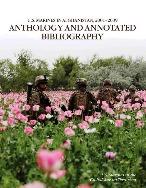
Monographs: These are the first draft of an official history and are the most common History Division publication. They are book-length studies of campaigns and operations of considerable duration (6-12 months) and can range from 15,000 to 150,000 words. The division also produces thematic monographs on topics such as African-Americans in the Marine Corps and women in the Marine Corps.
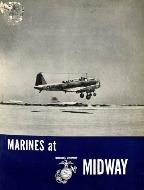
Definitive Histories: These are the most comprehensive and highly detailed accounts of all aspects of Marine Corps operations during a major conflict that the History Division produces. They are the final stage in the process of producing official history, and use information from the anthologies and monographs. They draw on all available sources, from archives, oral histories, and secondary works. Definitive histories are usually divided into multiple volumes of 110,000 to 600,000 words each.
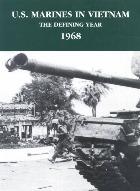
SUPPORT OF THE MARINE CORPS UNIVERSITY STRATEGIC PLAN
As part of Marine Corps University and Education Command, the History Division and Histories Branch support MCU/EDCOM in the mission of preparing leaders to meet current and future security challenges and inform the public of the service’s role in national defense by preserving, presenting, and promoting the history of the Marine Corps. As the service’s institutional memory, the Histories Branch and its publications supply historical perspective and precedents to MCU students in their professional military education and encourage study and research on subjects relevant to Marine Corps history. This supports the MCU/EDCOM strategic plan of advancing the legacy of the Marine Corps’ warfighting excellence through a forward-thinking military academic institution.
In Marine Corps University Strategic Plan 2017-2022, Goal 5 focuses on university outreach: Leverage MCU’s scholarship, research, publishing, stewardship, learning opportunities, and conferencing capabilities in order to strengthen the MCU brand and to support the Marine Corps, the broader national security audience, and the public. Histories Branch helps achieve this goal through its publications but also by ensuring that its subject matter experts assist faculty and students in researching, writing, and publishing on a variety of topics that relate to national security, thereby promoting a greater understanding of the Marine Corps’ role in U.S. and world history. The branch therefore assists MCU in honoring the Marine Corps’ past while embracing the challenges of educating and training students to succeed in uncertain and unpredictable security environments.